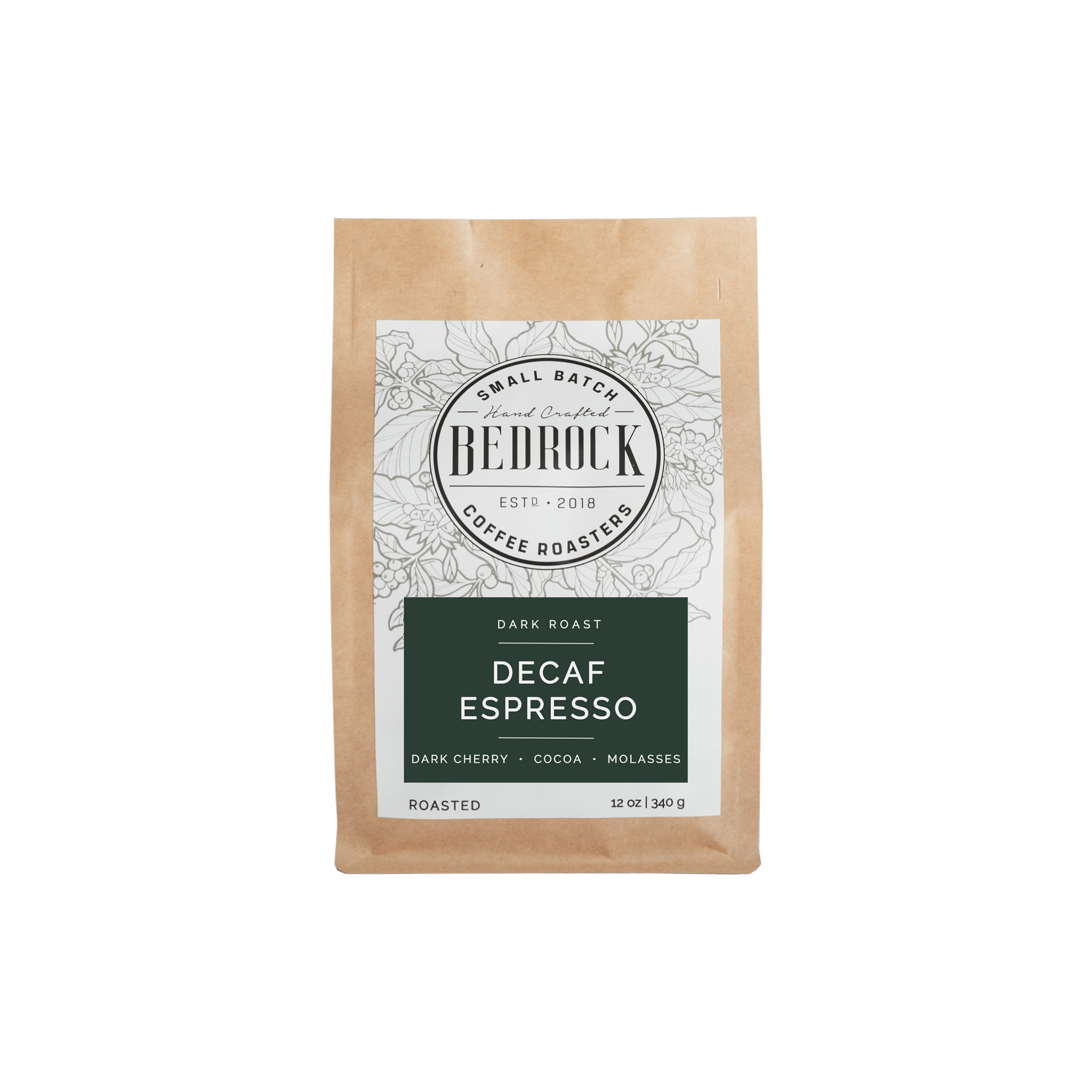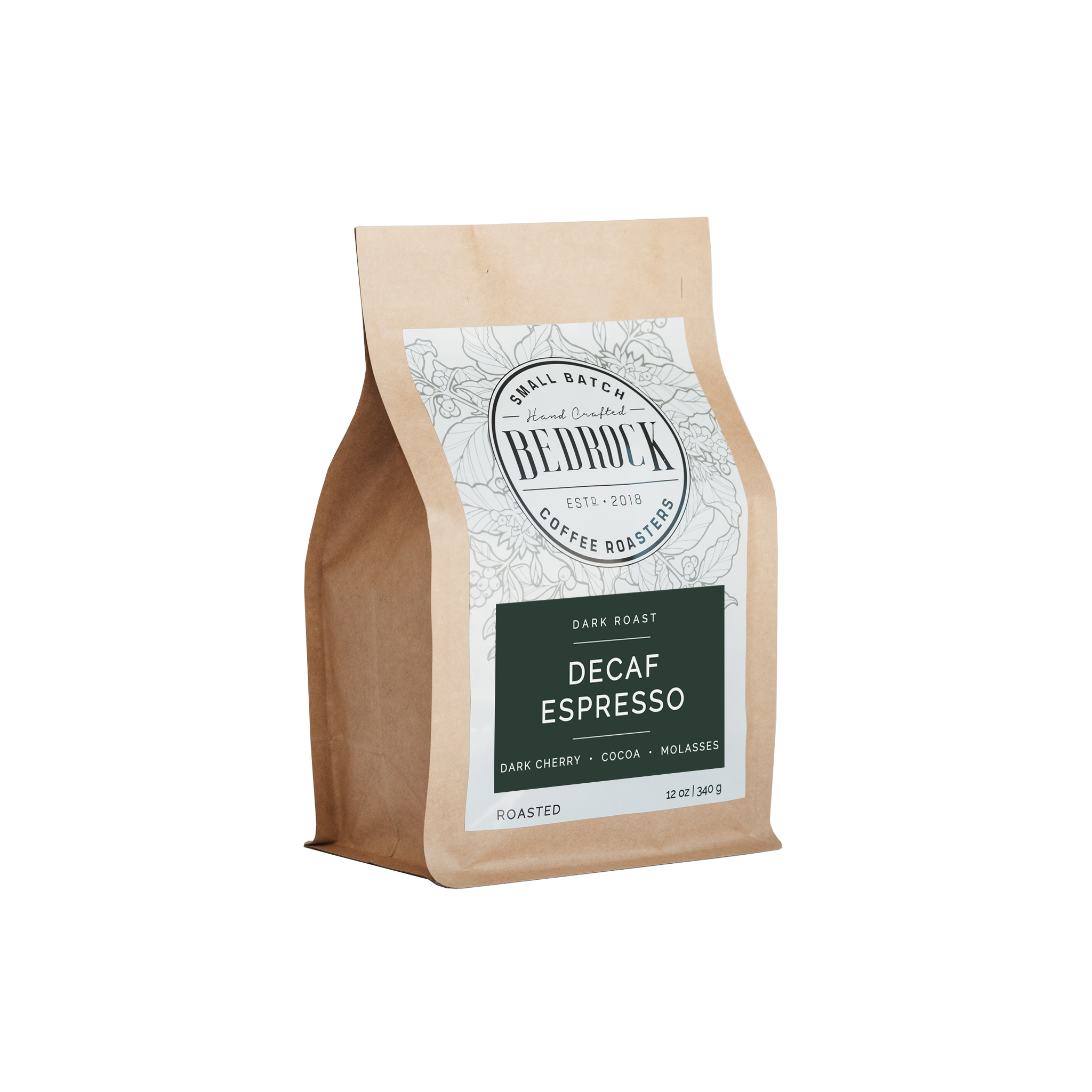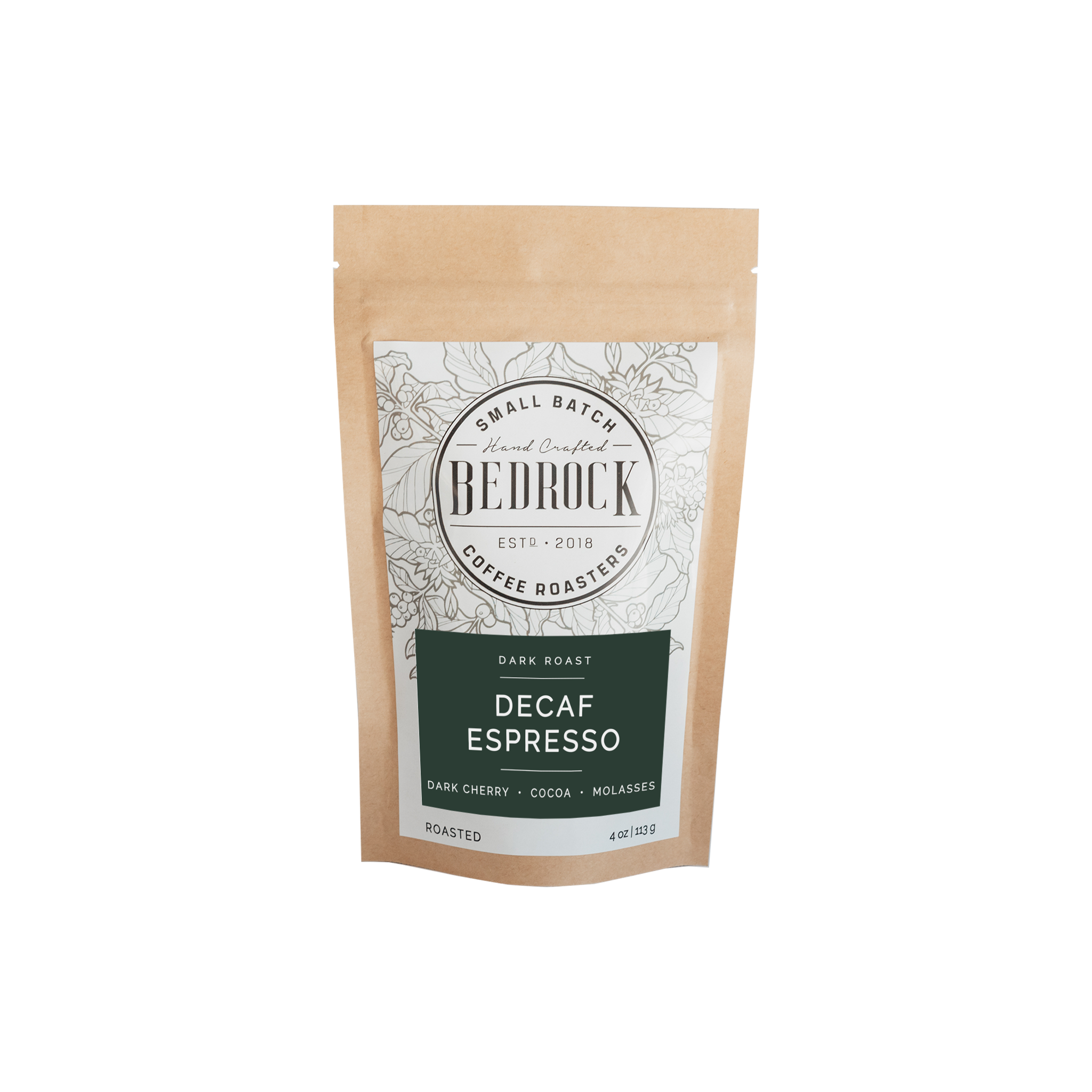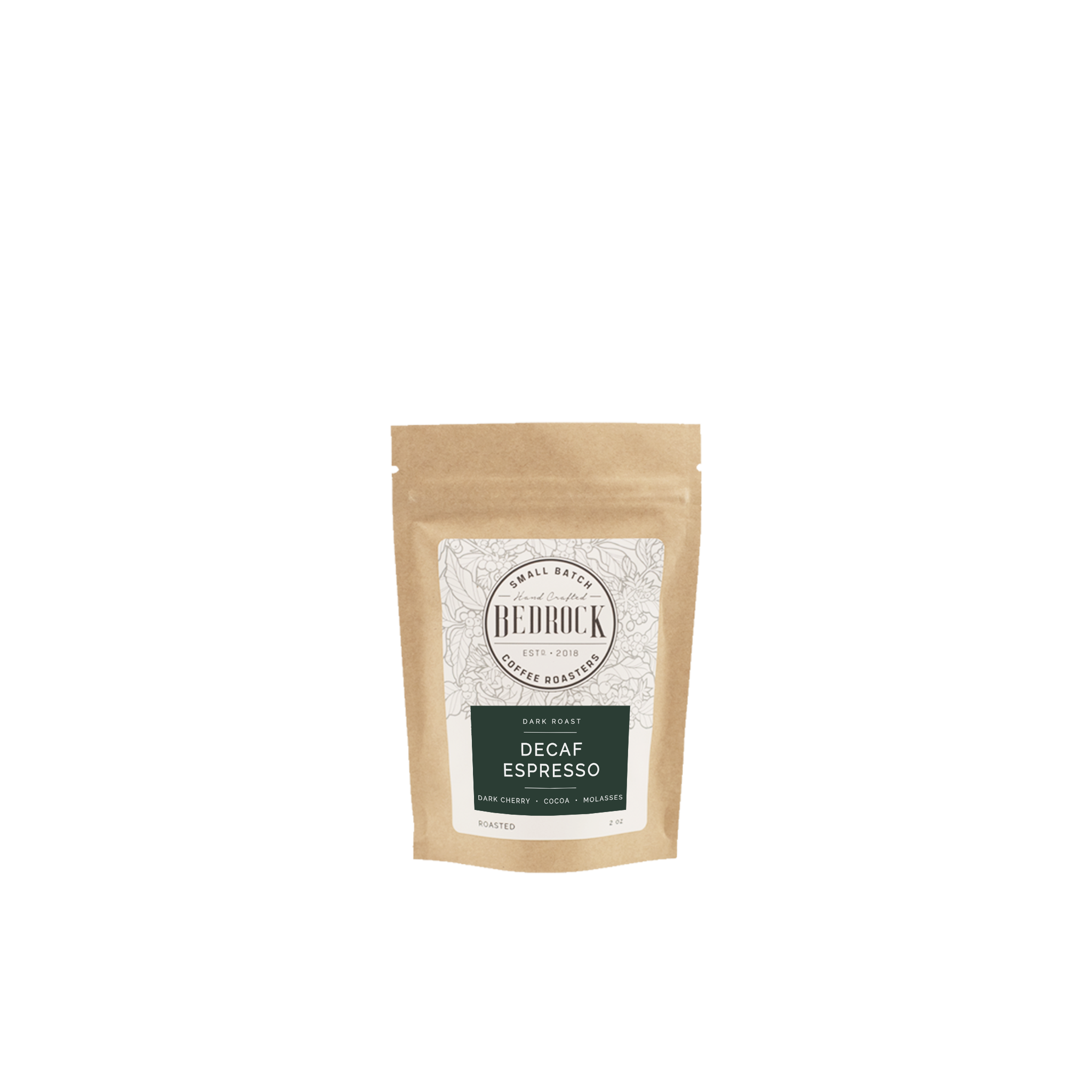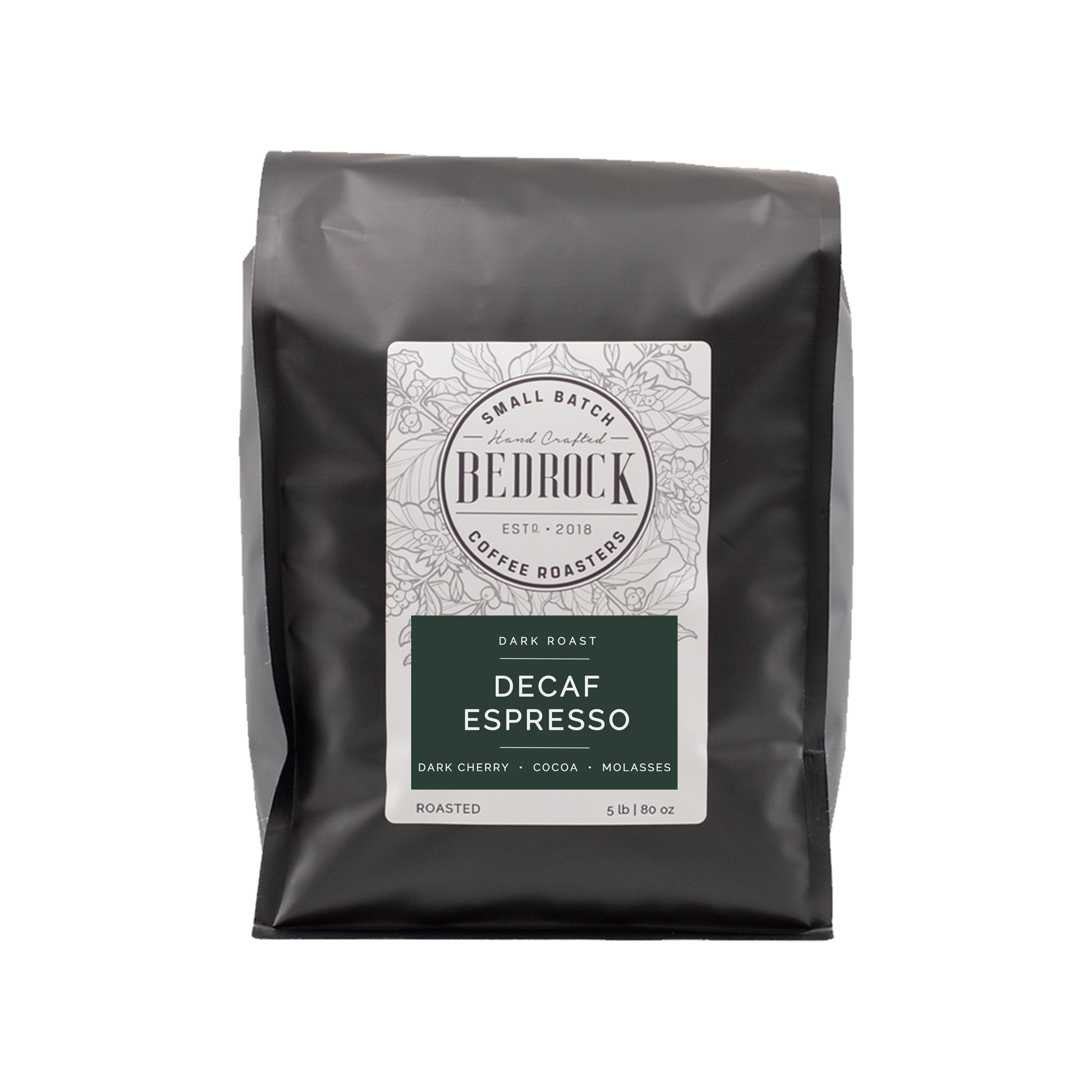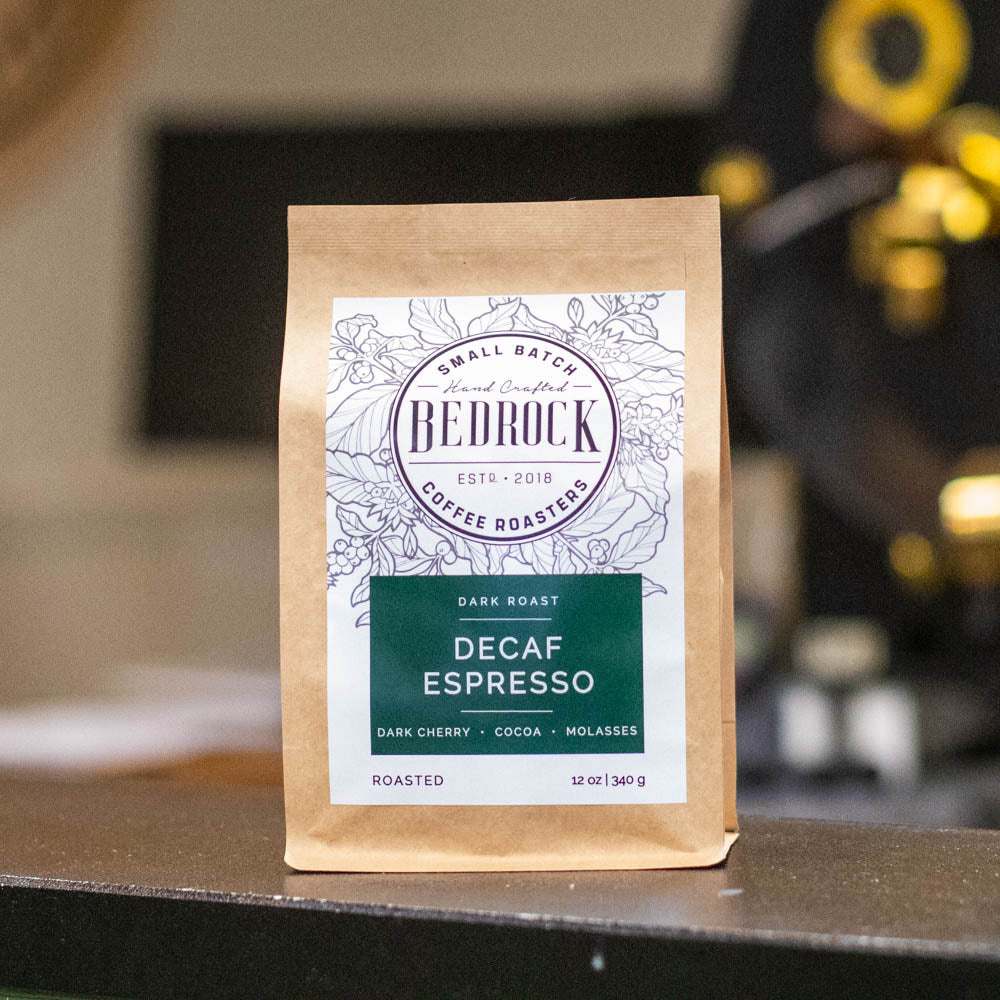Description
Tasting Notes: Dark roast with a velvety dark chocolate cherry ending with a silky-smooth molasses finish
Country of Origin: Colombia
Region: Huila
Farm: Various smallholder farmers
Altitude Grown: 1200–2000
Process: Decaf
Variety: Castillo, Caturra, Colombia
Our Decaf Espresso is a bold, dark roast crafted from high-altitude Colombian beans grown by smallholder farmers in Huila. It opens with rich, velvety notes of dark chocolate and ripe cherry, finishing with a smooth molasses sweetness. This cup delivers the depth and complexity you expect from a specialty espresso—without the caffeine. Featuring Castillo, Caturra, and Colombia varieties, decaffeinated with care to preserve full flavor.
*Contains no more than 0.01–0.03% caffeine
For more information on the decaffeination process, please refer to Cafe Imports' Sugarcane E.A. Decaf Process.
Ethyl acetate (E.A.) decaffeination is a natural process that maintains the integrity of green-coffee flavor.
- Ethyl acetate occurs naturally in many fruits, which is why this method is often referred to as natural decaffeination.
- This method requires a thorough steaming of the beans until they swell. An ethyl acetate aqueous solution is used to wash the swollen beans repeatedly.
- Ethyl acetate is a polar molecule, which makes it a good solvent for capturing the polar caffeine molecules from the coffee beans, since “like dissolves like.” The caffeine molecules bond to the ethyl acetate molecules and migrate through the cell membranes of cells of the beans.
The Sugarcane E.A. Decaffeination Process removes a minimum of 97% of all caffeine originally present within green coffee. The residual amount of Ethyl Acetate equates to a maximum of 10 ppm (a ripe banana naturally contains about 200 ppm). Ethyl Acetate has an evaporation point of 70°C. As coffee is roasted at a temperature well above this threshold, roasted coffee will present no trace of E.A.
*Source: Cafe Imports E.A. Decaf

